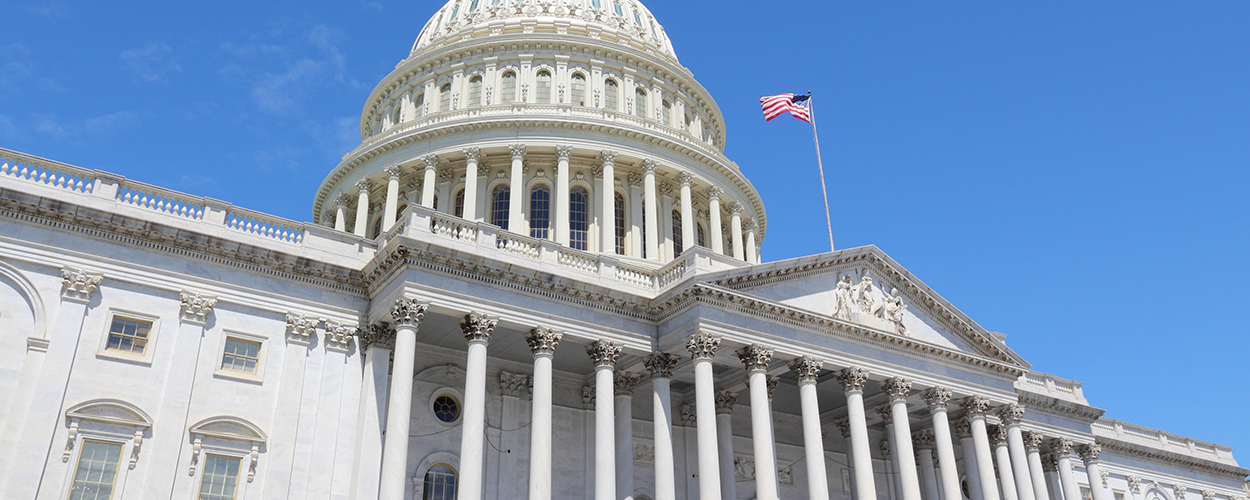This website uses cookies so that we can provide you with the best user experience possible. Cookie information is stored in your browser and performs functions such as recognising you when you return to our website and helping our team to understand which sections of the website you find most interesting and useful.
Business News Labels & Publishers Legal Media
Latest round of radio royalty proposals launched in Washington
By Chris Cooke | Published on Friday 22 November 2019

Proposals to force AM and FM radio stations in the US to pay royalties to artists and labels are formally back on the agenda in Washington. In many ways it’s a revamp of the old Fair Play Fair Pay Act that was last floating around Congress in 2017. But it has a new name. The Ask Musicians For Music Act. Or the AM-FM Act. Ha ha!
US copyright law is unusual in that it doesn’t provide full performing rights for sound recordings. Which means that, whereas AM/FM radio stations must pay royalties to songwriters and publishers, they do not need to pay anything to artists and labels. There is, however, a digital performance right as part of the sound recording copyright, so that online and satellite stations do pay, usually via collecting society SoundExchange.
The record industry has been trying to get at least broadcast rights for sound recordings for decades, most recently via the aforementioned Fair Play Fair Pay Act. However, it was decided not to include radio royalties for artists and labels in last year’s Music Modernization Act, because it was thought doing so would scupper the whole thing, preventing other important copyright law reforms from going through.
The radio industry is a powerful lobby in Washington and would have almost certainly pushed to have the whole MMA abandoned if radio royalties had been included.
As it is, the radio sector’s supporters in Congress earlier this year backed the latest version of what is called the Local Radio Freedom Act. That is an entirely pointless piece of proposed legislation which would basically seek to keep copyright law exactly as it currently is. So, it’s a “change nothing” act.
The all-new AM-FM Act has been brought to Congress by the same backers as the good old Fair Play Fair Pay Act: Republican Marsha Blackburn in the Senate and Democrat Jerrold Nadler in the House Of Representatives.
The latter said in a statement: “The United States in an outlier in the world for not requiring broadcast radio to pay artists when playing their music, while requiring satellite and internet radio to pay. This is unfair to both artists and music providers”.
“I’m proud to sponsor the Ask Musicians For Music Act of 2019”, he went on, “which would give artists and copyright owners the right to make a choice to allow AM/FM radio to use their work for free or to seek compensation for their work. The bill would also allow them to negotiate rates with broadcasters in exchange for permission for it to be aired. This is what music creators want and deserve”.
Needless to say, this latest attempt at getting a radio royalty for artists and labels was welcomed by trade groups across the record industry. And by collecting society SoundExchange, which recently tried to get radio royalties back on the post-MMA agenda via an opinion-editorial piece in Variety.
Its boss Michael Huppe said of the new legislative proposals: “The AM-FM Act ensures that the people who make the music have a protected property right in their own work by requiring broadcasters to get permission before they transmit recordings over the air. It sets the table for meaningful marketplace negotiations and ends the current market distortion in our laws that forces artists to subsidise the multi-billion-dollar FM radio broadcast industry”.
However, confirming that the music industry would face the same battle in Washington this time as with every previous attempt to get radio royalties for recordings, the National Association Of Broadcasters said: “[We oppose] the AM-FM Act, which could decimate the economics of America’s hometown radio stations that have launched the careers of countless musicians and exposed legacy artists to a new generation of listeners”.
The radio industry group added that its “door remains open to work with the record labels to find a holistic solution to this issue that reflects the enduring value to artists and labels of local radio to our hundreds of millions of terrestrial and digital listeners. Unfortunately, the record labels have shown little interest in having those discussions”.
For a wider discussion about the US radio royalties debate, check this recent edition of our Setlist podcast.





